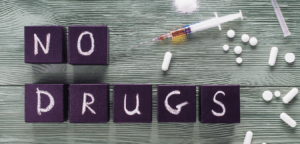
Once a parent makes the commitment to get sober, the real work of recovery begins. This process can be challenging, both physically and mentally. For most people who enrol in a rehab program, the stages of recovery include:
Detox: In this stage, drugs and alcohol are cleared from the body, so the client can become medically stable. Detox prepares the body and mind for the more intensive work of rehab that will follow. People going through detox can experience uncomfortable withdrawal symptoms, like anxiety, cold sweats, tremors, nausea, vomiting, and muscle pain. They may also have unpleasant emotional and behavioral responses, like depression, mood swings, irritability, or irrational anger.
Inpatient or residential rehab: Many clients, especially those who have a long history of substance abuse or severe addiction, choose to go to an inpatient treatment center or residential rehab facility after detox ends. This stage may take place in a hospital, specialized inpatient unit, or a dedicated recovery facility. During this time, your parent may be away from home if they need 24-hour care. At an inpatient facility, clients participate in individual therapy sessions, group counselling, family therapy, support groups, and other activities that will help them learn how to avoid alcohol and drugs in the future.
Outpatient rehab: Clients who are motivated to quit and stable in their early sobriety may go straight from detox to outpatient rehab. Outpatient rehab involves going to classes and therapy sessions in a treatment facility or clinic outside the home while going home at night. Some people continue to work while they are in outpatient rehab, while others spend the entire day in recovery activities. Outpatient programs typically last four or more weeks. Clients who have finished an inpatient program may transfer to outpatient rehab when they no longer need a highly structured, supervised environment to stay sober.
Aftercare services and sober living homes: After a rehab program ends, many facilities provide aftercare support services. These services may include therapy sessions at the facility, access to self-help groups, membership on social media sites, family weekends, workshops, volunteer activities, recreational events, and more. For clients who need a transition between rehab and their former life at home, sober living houses provide a place to live in the community while practicing new coping skills.
Parents who have been through a rehab program can experience a wide range of emotions, from gratitude and joy to depression, anxiety, and anger. Kids must remember that these emotional responses are natural, and they should be handled with the help of a professional therapist or support group.
In the months following rehab, it’s more important than ever that young people have their own support system — including therapists, friends, and sober family members — to help them understand the nature of addiction and recovery, and to know what to expect from their parents after rehab. Sobriety is not always easy, and kids may be surprised or frightened by their parents’ new behaviours. Here are a few typical behaviours that kids may encounter in parents who are newly sob
Exchanging one addiction for another: People in recovery may switch from one addictive substance or activity to another as they learn to cope with the challenges of sobriety. For instance, a recovering alcoholic may start using coffee, tobacco, or food as a substitute for drinking. This behaviour is not necessarily harmful; it may just be a transitional phase that will eventually resolve as the individual becomes more comfortable and confident with abstinence.
Experiencing strong emotions and mood swings: In sobriety, people have to confront the emotions that they suppressed when they were drinking or using drugs. These emotions may include resentment, anger, fear, anxiety, or guilt. It’s not uncommon for recovering individuals to struggle with emotional outbursts or to switch from one emotional state to another in a fairly short period of time. Individual and group therapy can help clients manage these responses. Extreme mood swings or frequent outbursts, however, could point to an untreated mental health disorder and require psychiatric help.
Expecting to have a close relationship before a child is ready: After a parent finishes rehab, children will have their own emotions and resentment to deal with. Memories of abuse and neglect do not fade quickly or easily, and children may find that they don’t trust the sober version of their parent. Parents who want to reconnect with their kids before the child is ready may be disappointed. Likewise, a child might resent a parent who expects to have an immediate bond after years of emotional distance. Family therapy is crucial during this phase to help parents and children repair broken bonds and restore trust.
Relapsing back to substance abuse: Relapse is one of the most difficult outcomes for kids to accept. After investing so much hope in rehab, it can be devastating to see a parent fall back into drinking or using drugs. Kids must learn that as hard as they work in recovery, and as much as they hate the idea of falling back into the trap of addiction, most people who abuse substances will relapse at least once. Relapse does not mean that rehab has failed or that a parent will never get sober. But it does mean that the parent may need more intensive support to get back on track with their goals. Once again, kids must remember that they can’t control the outcome — good or bad — of a parent’s recovery.
Credited to : lagunatreatment










